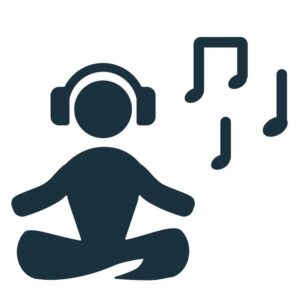
Victoria was always inclined towards music since she was a young girl. She hummed and sang her favorite songs, and her parents couldn’t help but notice how happy it made her. As she got older, she began to have problems with anxiety and depression, and tried therapy and medication, but nothing helped. One day, Victoria stumbled upon a music therapy session.
When she walked into the room and heard the guitar playing, she immediately felt at peace. Closing her eyes, she realized that listening to music was a powerful tool for managing her anxiety and depression.
Scientists have found that music positively affects brain function and behavior. Research proves that music reduces stress, pain, and also improves brain capacity. Music can… Boost your immune system. Boost confidence. Improve communication.

Studies suggest that music is so powerful for our brain, that there is a scientific study on the effects of music on the brain called “Neuromusicology.”
Some songs stimulate the ability to think and solve problems, and even sad songs cleanse the brain. Listening to music allows us to sway to the beat and tap our feet, motivates us to play sports, and boosts our spirits on bad days.
If you want to do something good for the brain, turn on the music player and sing along to some tunes. Better yet, sing and dance simultaneously. It sounds like a simple exercise, but it’s quite a workout for the brain. This happens because music stimulates many brain areas, such as those responsible for memory, movement, and mood.
Music from the beginning. From the 22nd week of pregnancy, unborn babies recognize musical pieces and react with uterine movements or kicks. Researchers say soft sounds, such as classical music, calm the fetal heartbeat and relax activities.
From fast to quiet. If we listen to tight and aggressive music during sports, the adrenaline released leads to peak performance. The stress hormone cortisol is reduced with calm music, controlling tension and emotions.







